Discover the Easiest Way to Grow Your Own Herbs Without a Backyard!
Struggle with Limited Space? Here’s How to Bring Fresh Herbs to Your Urban Life.
The Problems This Will Cover:
- Limited Space: Learn how to maximize your balcony or windowsill for herb gardening.
- High Grocery Costs: Reduce your spending on store-bought herbs.
- Lack of Freshness: Ensure you always have fresh, organic herbs at your fingertips.
- Environmental Concerns: Minimize your carbon footprint by growing locally.
What You’ll Learn:
- Space-Saving Techniques: How to use vertical gardening and creative containers.
- Herb Selection: Which herbs are easiest for beginners to grow and maintain.
- Gardening Basics: Essential tips on sunlight, watering, and soil preparation for potted plants.
- Cost-Effective Strategies: Start gardening with minimal investment using seeds and recycled containers.
If you are ready to tackle the challenge, we recommend Burpee’s Culinary Herb Starter Kit. This kit everything that you need to start grow 5 popular herb right away. You will have new, fresh flavors in your kitchen in no time.
How To Start A Balcony Herb Garden
Reasons to Begin a Balcony Herb Garden
Starting a balcony herb garden offers several valuable advantages.
- Health Benefits: Fresh herbs contain essential vitamins and antioxidants. By growing them yourself, you ensure that you always have the freshest ingredients available.
- Eco-Friendly Choice: Cultivating your own herbs lowers the need for store-bought options, which often require extensive transportation and packaging, harming the environment.
- Save Money: A few seeds or starter plants can provide you with a steady supply of herbs. This means you’ll save money compared to buying them at the store regularly.
- Visual Appeal: A well-groomed herb garden enhances the beauty of your balcony, turning it into a peaceful retreat where you can enjoy nature.
- Easy to Customize For Any Space: You can tailor your herb garden to fit your specific space, whether it’s a small windowsill or a larger balcony, by using containers, hanging planters, or vertical garden setups.
Important Questions to Consider Before Starting Your Balcony Herb Garden
Before you begin planting, think about the following:
- Sunlight: Do you have at least 6-8 hours of sunlight daily? If your balcony lacks sunlight, focus on herbs that do well in partial shade, like mint and parsley.
- Space: What is the size of your balcony? If space is limited, consider vertical gardening or hanging pots to maximize your area.
- Wind Protection: Is your balcony exposed to strong winds? You may want to create barriers or choose sturdier plants to help your herbs thrive.
- Time Available: How much time can you give to your herb garden? While herbs don’t require extensive care, they need regular watering and occasional trimming.
Top Herbs for Your Balcony Garden
Choosing the right herbs is important for a successful balcony garden. Think about your cooking and what you like to use. If you enjoy Italian dishes, consider planting basil, oregano, and parsley. For tea lovers, herbs like mint and lemon balm are excellent.
For beginners, try these easy-to-grow herbs:
- Basil
- Mint
- Chives
- Thyme
These herbs grow well and add flavor to various recipes. Avoid starting with cilantro or dill, as they can be hard to manage in pots.
If you’re feeling adventurous, try lemon balm or chocolate mint. These herbs are easy to grow and can spice up your cooking, adding unique flavors while remaining simple to care for.
Now that you are ready to get started, you will need good quality seeds. We suggest Johnny’s Selected Seeds. The company is based in Maine and offers a wide variety of excellent quality seeds for vegetables, herbs and flowers.
Growing Herbs In Pots For Beginners
Select Your Containers
Choosing the right pots is important for your herb garden. The size and material are key factors. Here are some container options:
- Plastic Pots: Light and great for hot climates since they hold moisture well.
- Terracotta Pots: Attractive, but they can dry out quickly, so they may need more watering.
- Fabric Pots: Eco-friendly and allow good airflow.
Ensure your containers have drainage holes. This prevents standing water that can cause root rot. Aim for pots that are 6 to 12 inches deep to provide enough space for your herbs.
You can also recycle items around your home. Here are some creative ideas:
- Old teapots or coffee mugs
- Wooden crates or wine boxes
- Cleaned and painted tin cans
- Halved plastic bottles
- Old strainers
- Hanging shoe organizers
- Empty milk jugs
Almost any sturdy container can work as long as it can hold soil and drains well. Just avoid using items that have been in contact with chemicals.
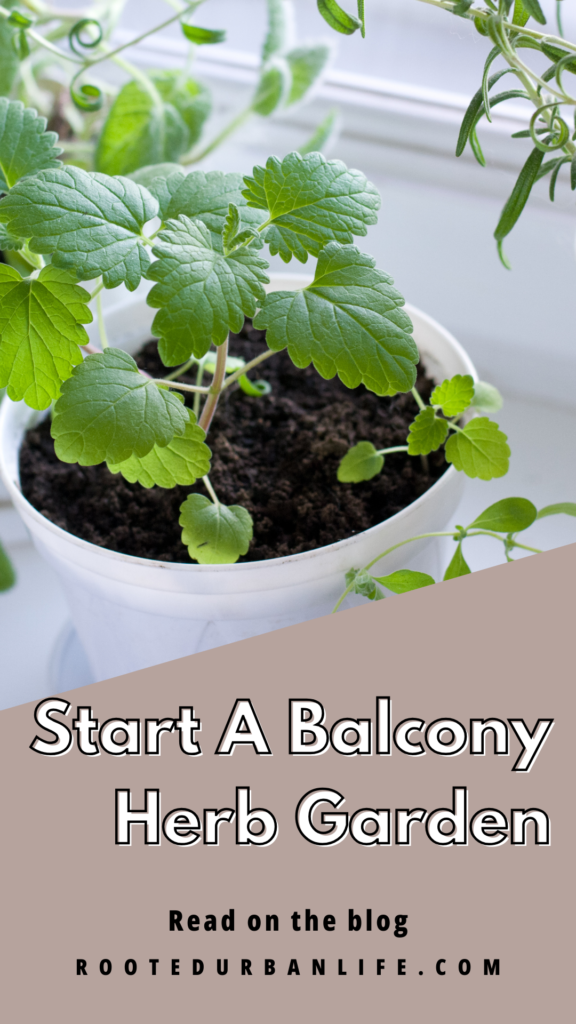
Short on space? We recommend stackable pots such as VIVOSUN 5 Tier Vertical Gardening Stackable Planter. They are sturdy and well suited for herbs, strawberries and flowers.
Soil Preparation
When preparing to plant, select a quality potting mix that drains well. Regular garden soil is too heavy and can compact, which suffocates roots.
To improve soil health, mix in some organic materials like compost. If you use containers that retain moisture, such as plastic pots, add perlite or sand to ensure good drainage.
Planting Your Herbs
Follow these simple steps to plant your herbs successfully:
- Fill the container with your prepared soil, leaving about an inch from the top.
- Create small holes for each herb.
- Carefully take the herb out of its original pot, making sure not to hurt the roots.
- Place the herb in the hole, cover it with soil, and press down gently to remove air pockets.
- Water the plant well to help settle the soil around the roots.
You can also grow herbs from seeds. This approach can be more economical. Here’s how to start:
- Choose high-quality seeds.
- Use a seed starting mix.
- Plant seeds following the packet instructions.
- Thin the seedlings if they overcrowd.
- Keep the soil moist but avoid overwatering.
- Transplant when seedlings are strong enough.
Group herbs with similar light and water requirements. For example, rosemary and thyme prefer drier soil and grow well together.
Some herbs may improve each other’s growth. Parsley and basil are good companions, while mint can be aggressive. This means it can overtake other herbs, so it’s wise to plant mint alone.
Avoid overcrowding your containers. Herbs need space to thrive and grow.
Herbs That Should Not Grow Together
When growing multiple herbs, it’s important to consider which ones don’t get along.
- Mint and basil don’t mix well due to their different growth habits. Mint can easily overwhelm other herbs.
- Fennel also needs its own space and doesn’t work well with most other plants.
Helpful Tip: Pair herbs that have similar light and water needs, such as rosemary and thyme, for a more successful garden.
FAQs
What are the best herbs to start with for a beginner balcony garden?
For beginners, herbs like basil, mint, chives, and thyme are great options. These are easy to grow and can be used in a variety of recipes.
How much sunlight do herbs need to thrive?
Most herbs require 6-8 hours of sunlight per day. If your balcony doesn’t receive that much sunlight, herbs like mint and parsley can thrive in partial shade.
How should I water my herbs?
Water your herbs in the morning and evening. Make sure to use pots with drainage holes to prevent overwatering and root rot.
Can I plant multiple herbs in the same pot?
Yes, but be mindful of which herbs you plant together. For example, mint can be very invasive and should be planted in its own pot to avoid overwhelming other herbs. Fennel also needs its own space and doesn’t pair well with most other herbs.
What are the benefits of starting a balcony herb garden?
A balcony herb garden can provide health benefits (fresh herbs packed with vitamins), be an eco-friendly choice, help you save money on groceries, and even improve the visual appeal of your outdoor space.
What type of containers should I use for my herbs?
You can use a variety of containers, including plastic pots, terracotta pots, or even creative recycled options like old teapots, tin cans, or wooden crates. Just make sure they have drainage holes.
What soil should I use for my herb garden?
Use a quality potting mix that drains well. Regular garden soil is too heavy for containers. Adding organic material like compost or drainage enhancers like perlite can improve the soil health.
How can I prevent my herbs from overcrowding?
Avoid overcrowding by planting herbs with similar growth habits together. For instance, rosemary and thyme both prefer drier soil and grow well together. Mint should always be kept in a separate container.
Can I grow herbs from seeds?
Yes, growing from seeds can be more cost-effective. Use a seed starting mix, follow the packet instructions, and transplant the seedlings when they are strong enough.
How do I protect my herbs from wind if my balcony is exposed?
If your balcony is exposed to strong winds, you can create wind barriers or choose sturdier herbs that are more likely to withstand the conditions.
What herbs should I avoid starting with as a beginner?
- Cilantro and dill can be tricky to manage in pots, so it’s best to avoid these when you’re just starting out.
Key Takeaways
| Choose beginner friendly herbs that will do well in your particular environment. Make sure that the pots have proper drainage and use a good, light potting soil. Place the pots so that they get 6-8 hours of sun per day and are shielded from strong winds. Group plants with similar water and light needs. |
By choosing the right herbs, providing proper care, and getting creative with your space, you can enjoy fresh, organic herbs year-round.
Whether you’re an experienced gardener or a complete beginner, there’s no better time to start growing your own herbs.
Share your progress with us on social media and subscribe to our blog for more tips on urban homesteading.
Unlock the Secret to a Thriving Herb Garden! Get started with our curated Herb Starter Growing Kit – Shop Now !Don’t forget to check out our recommended herb garden kits and DIY project guides to make your gardening journey even easier!
Other Posts You Might Enjoy
Beginners Guide to Harvesting and Storing Fresh Herbs
Creative Balcony Herb Garden Solutions for Small Spaces
Best Tomato Plants For Container Gardening
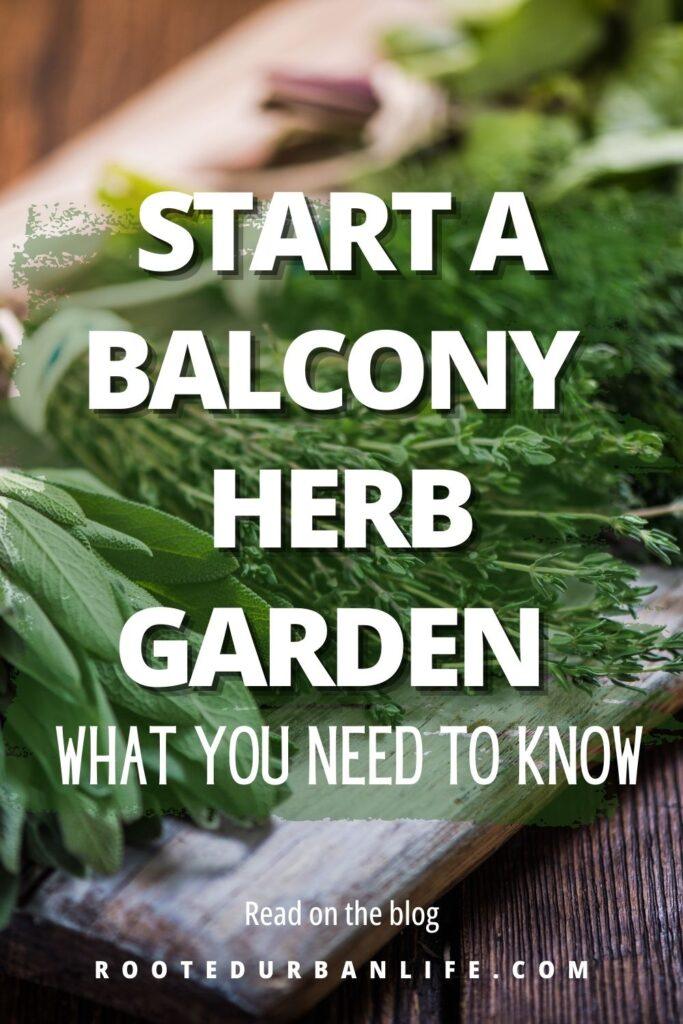


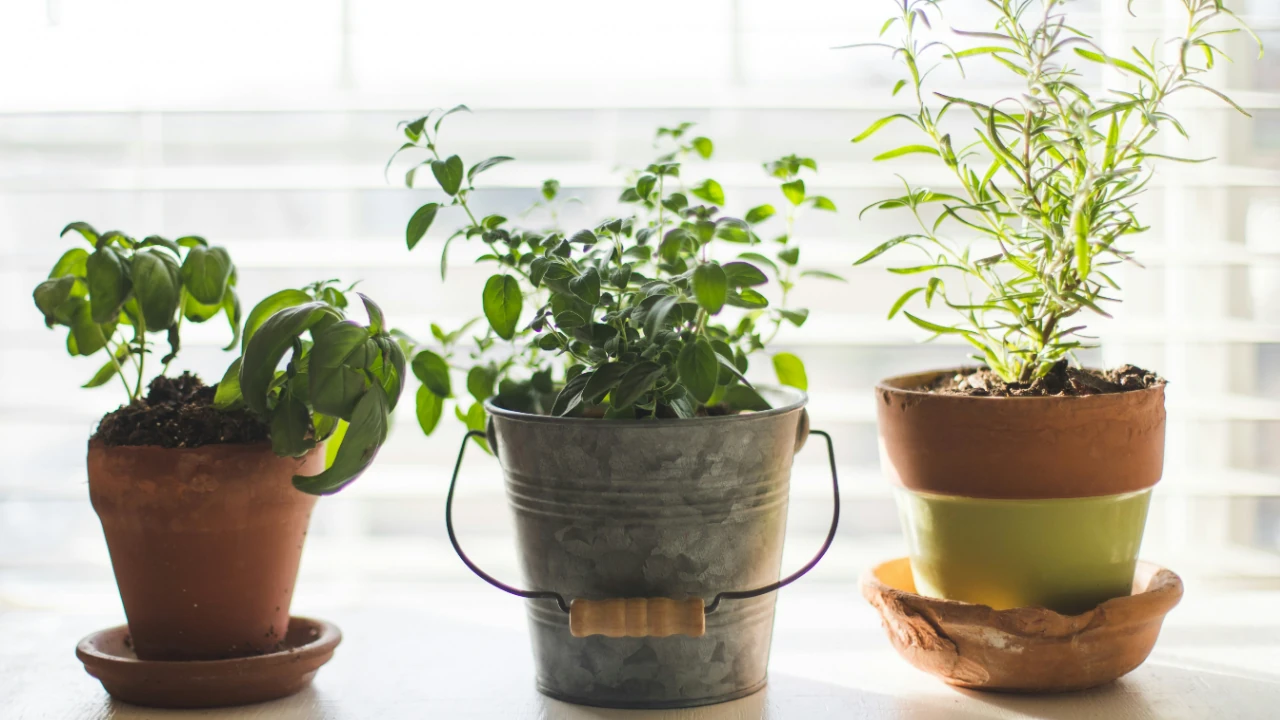
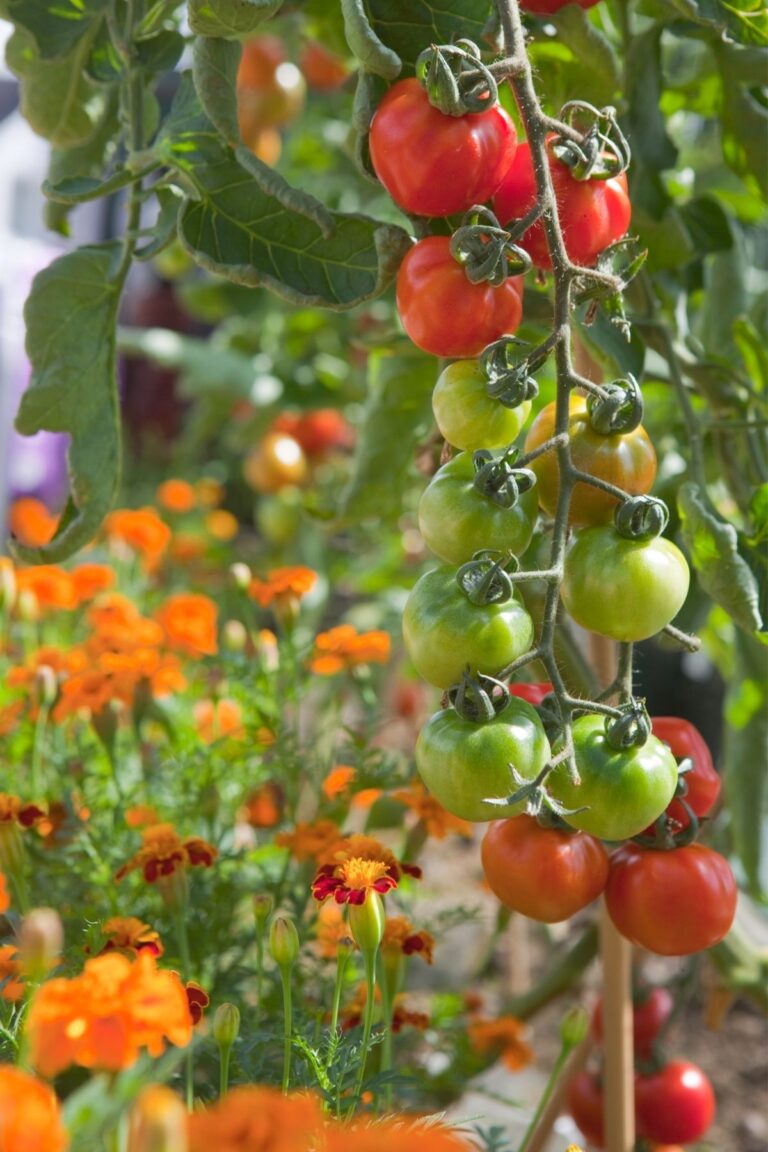
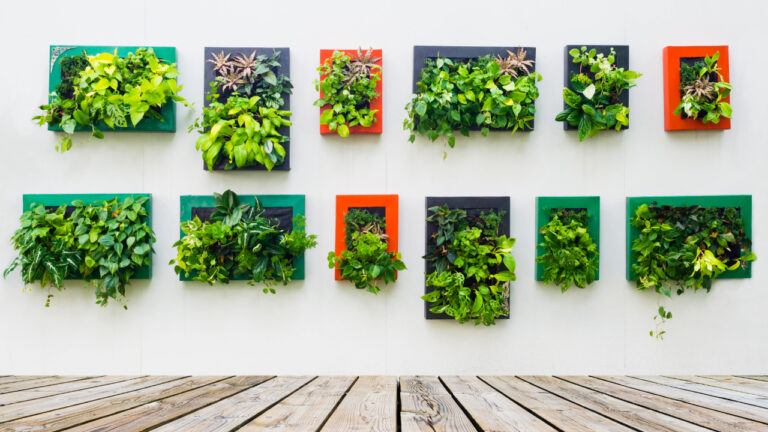
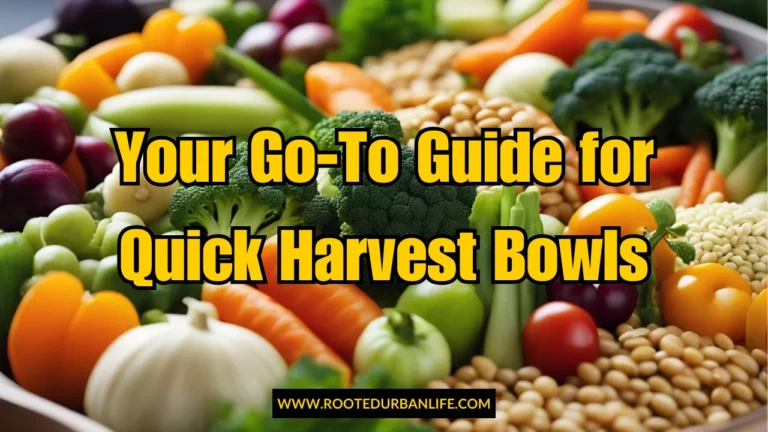
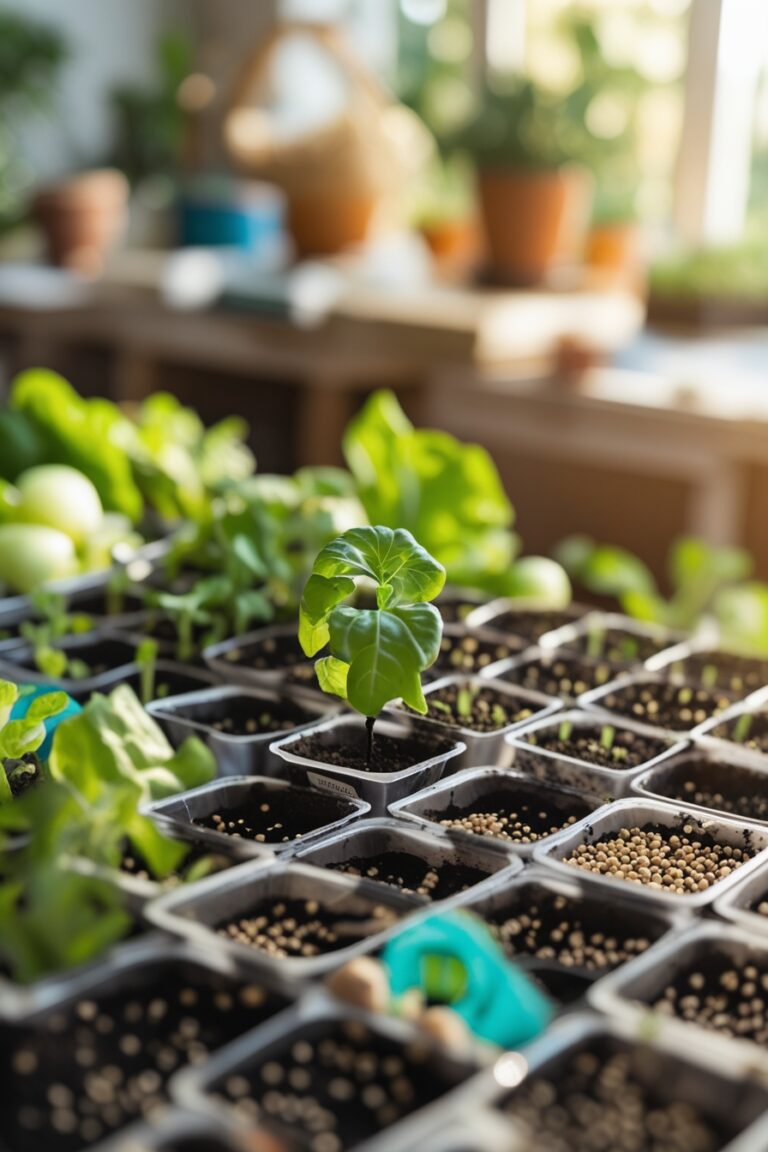
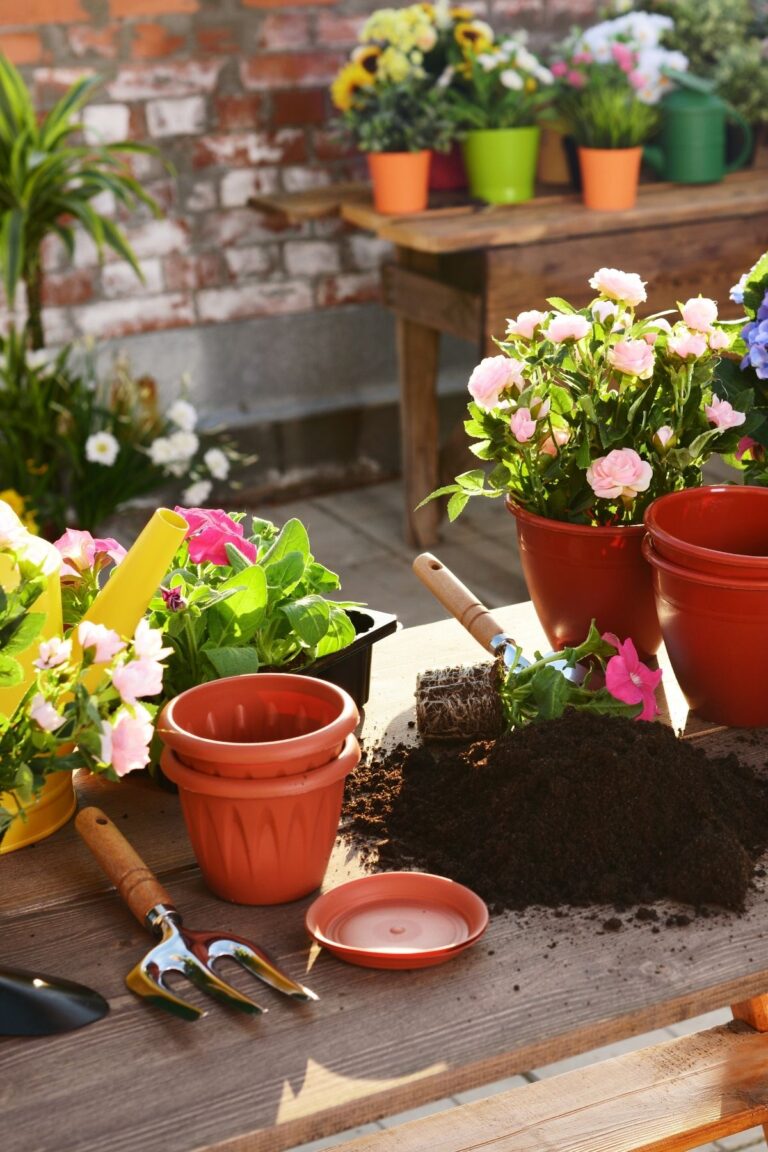
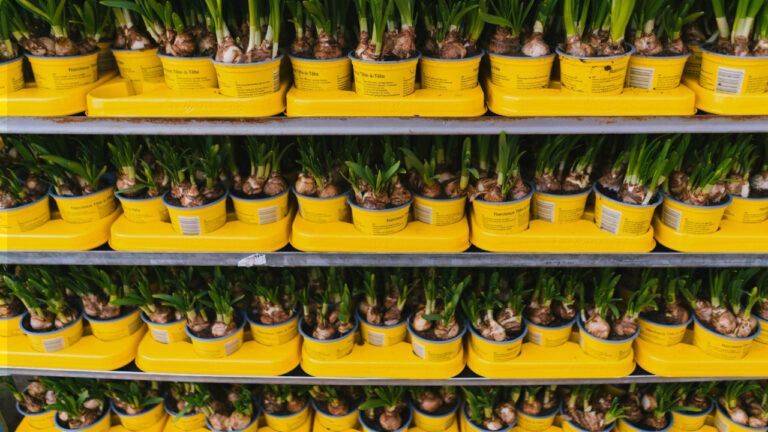
When I moved to my new house, I always thought of having a balcony garden. But I am little skeptical about how to start. This article is an absolute treasure trove of information for anyone looking to start their own balcony herb garden! I love how it breaks down everything so clearly and makes the whole process seem so approachable.
The step-by-step guide is super helpful, especially the tips on choosing the right herbs and repurposing containers. I had never thought about using old teapots or shoe organizers as planters, but now I can’t wait to try it out! Thanks for sharing such a detailed and motivating guide!
Thank you Kavitha. I am glad you found it helpful. Let me know what happens with your balcony garden. If you have other questions, don’t hesitate to ask. Take care!